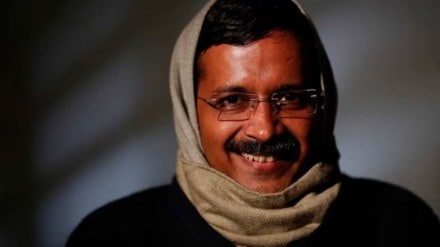Former Delhi chief minister and AAP leader Arvind Kejriwal on Friday registered his protest against the 18 per cent GST imposed on the sale of water and air purifiers by the central government and demanded its immediate removal.
Kejriwal cited the worsening case of AQI in Delhi as the primary reason for his demand. Throughout last week (November 21-28), Delhi’s air quality rating has meandered between the ‘Very Poor’ to ‘Severe’ categories, with daily average Air Quality Index (AQI) values generally ranging between approximately 330 and 420 causing great public protest and uproar.
What did Kejriwal Say?
Taking to social media platform X to voice his concerns about the worsening AQI in Delhi. Kejriwal said that air pollution in Delhi and across north India has become deadly and urged the central government to focus on building long term solutions for the emerging problem instead of collecting taxes.
“In Delhi and across North India, the air has become deadly. Instead of providing solutions, the government is collecting more taxes from the public,” the AAP leader posed on X. Expanding on his statement, Kejriwal pointed out that when people go to buy air purifiers to protect their families from pollution, they find that the government is charging 18 per cent GST on them, which in his words is ‘outright injustice.’
Following through on his list of concerns, AAP supremo demanded the Centre to immediately revoke the GST imposed on air and water purifiers. “If you cannot provide solutions, at least stop burdening the pockets of the people,” he added.
What do doctors suggest?
The air quality is expected to remain ‘very poor’ over the coming week, as per a forecast done by the Air Quality Early Warning System for Delhi (AWESMD).
PM2.5 (fine particulate matter) has been recognised as the primary pollutant behind these conditions. Concentrations of PM2.5 have been found in Delhi air have been consistently many times higher than the World Health Organization annual guideline value.
With Delhi’s air quality slipping into the ‘very poor’ and ‘severe’ categories this winter, doctors have stressed the need for regular diagnostic screening to detect early signs of pollution-linked health deterioration, especially among smokers, asthma patients, children and people with pre-existing cardiac or respiratory conditions.
